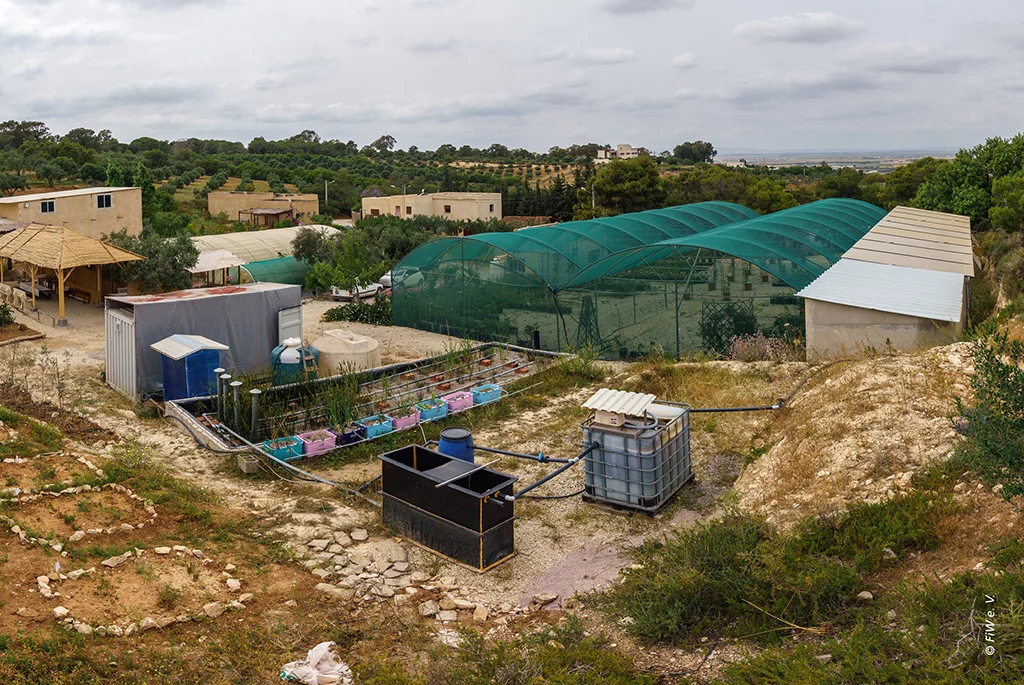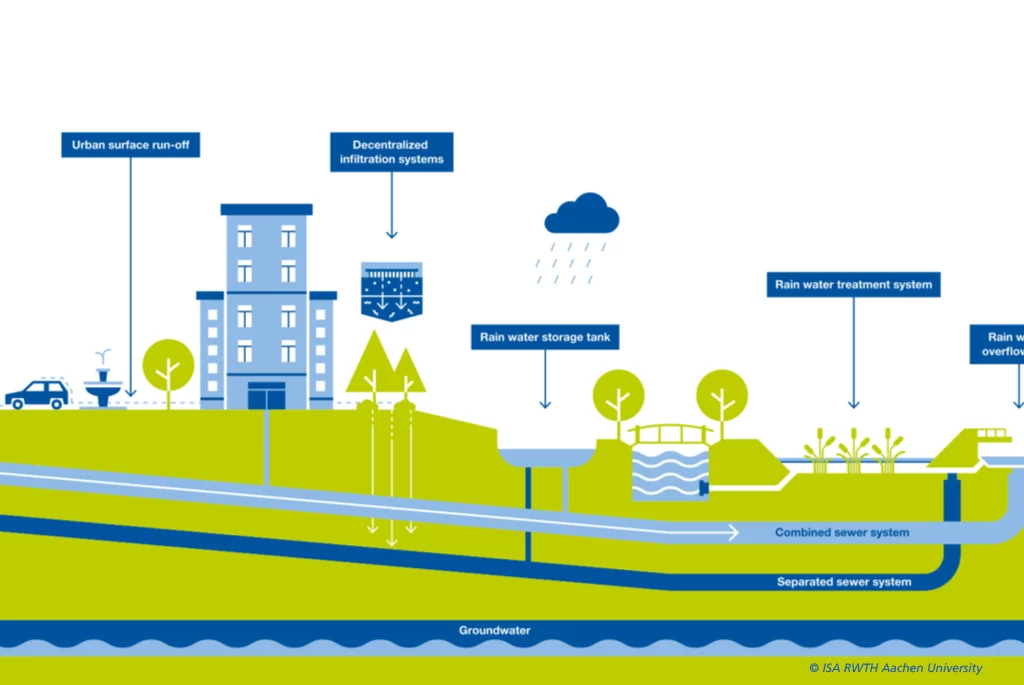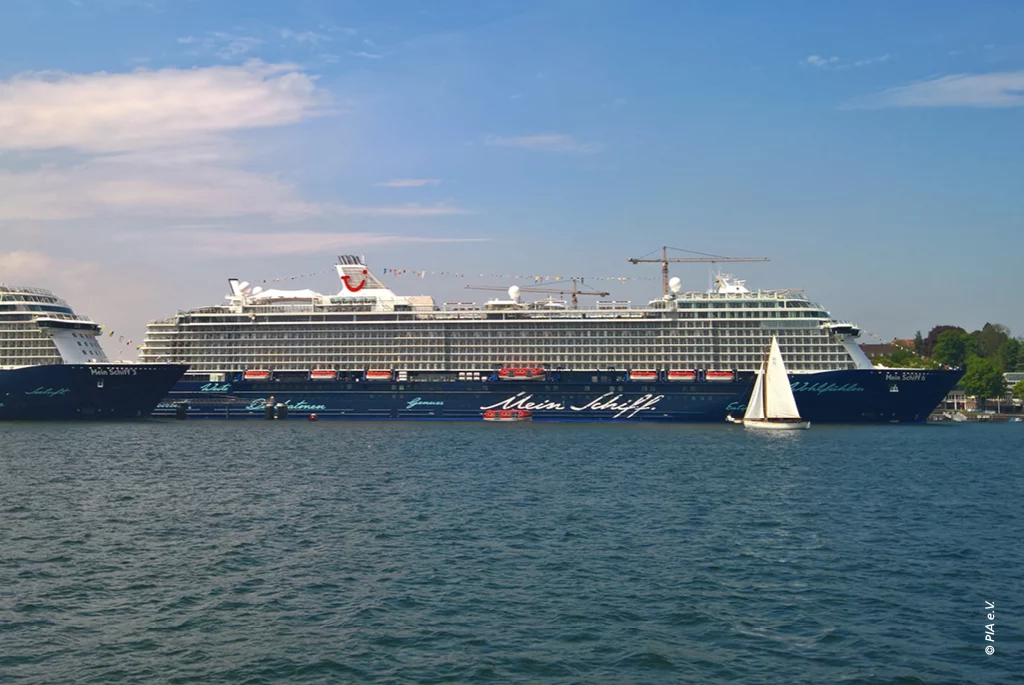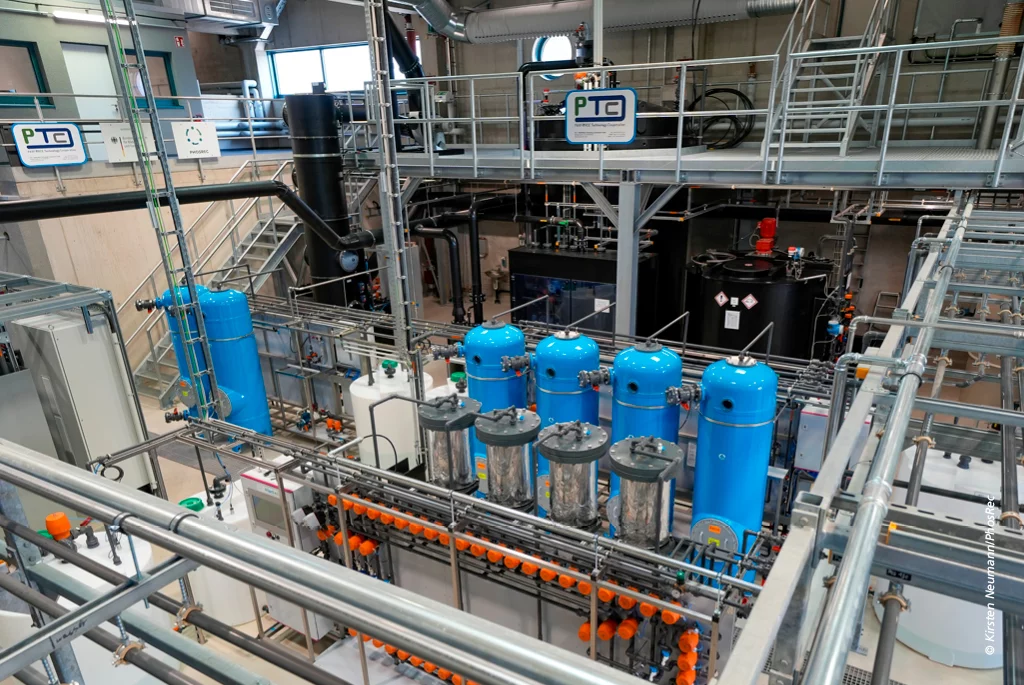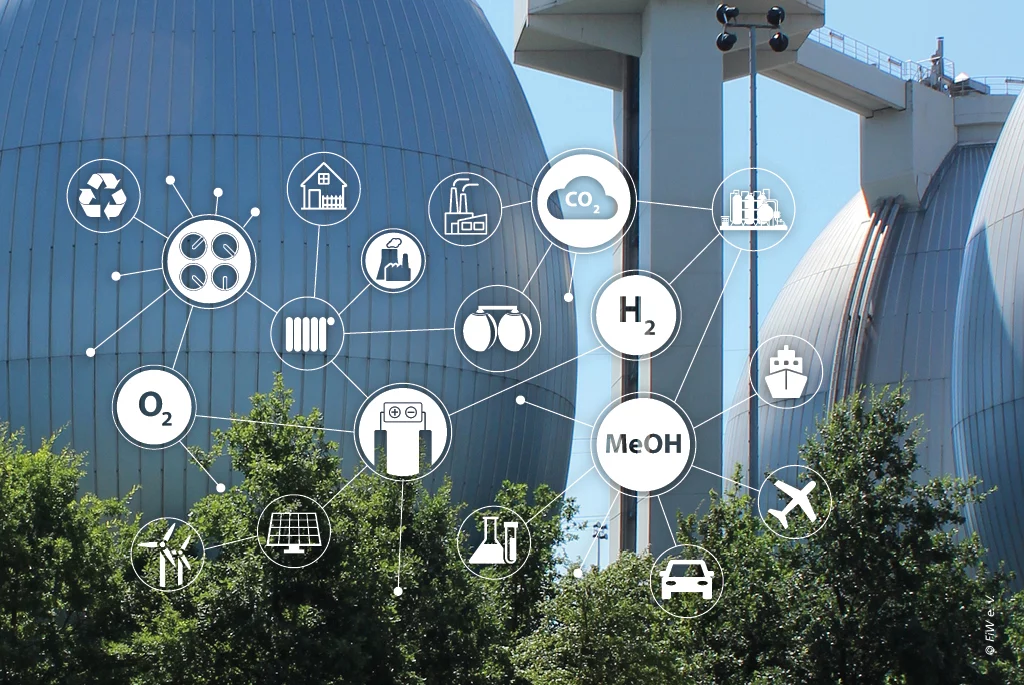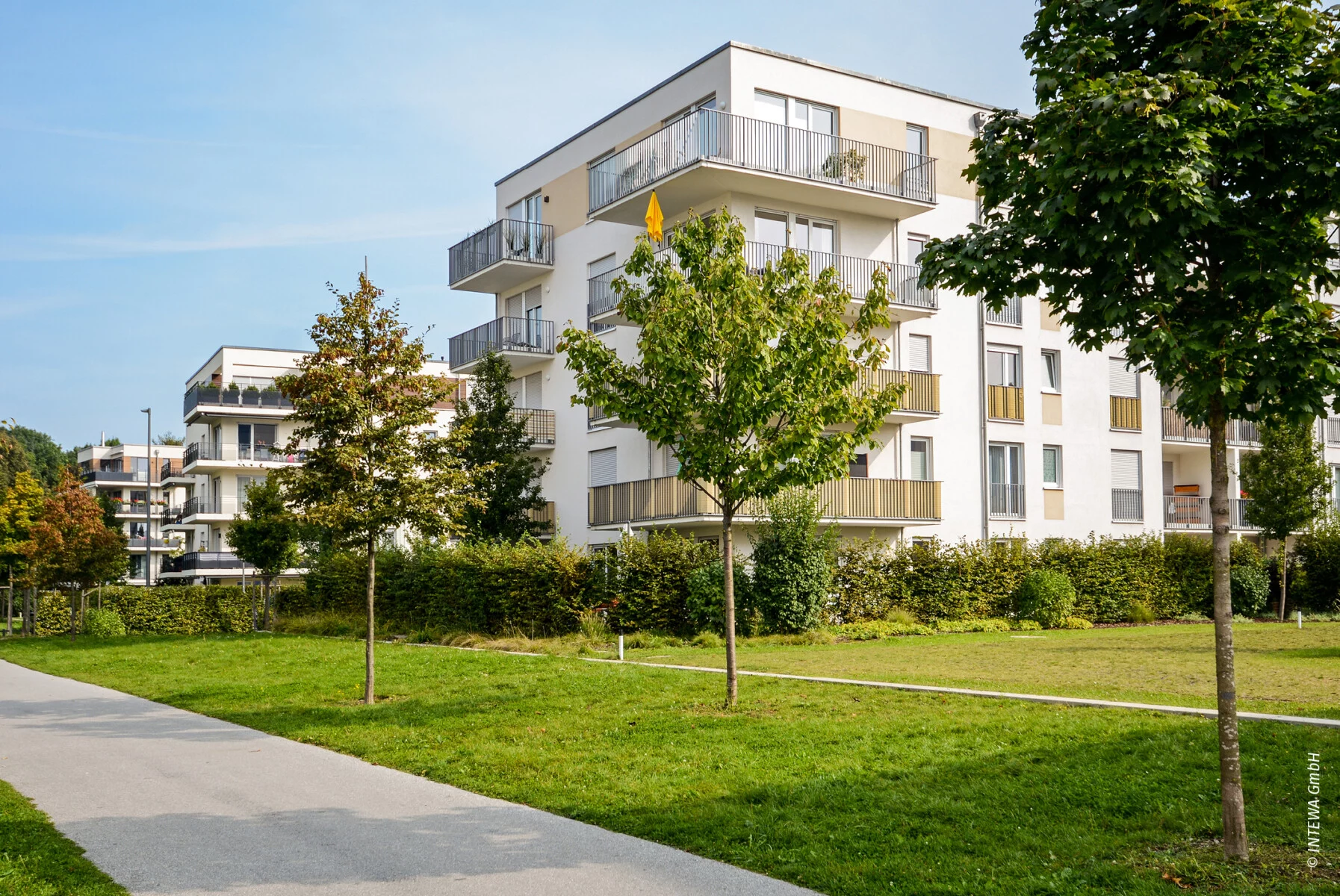WaterReTUNe – Concept and experimental setup for the desalination of wastewater treatment plant effluents after nature-based pre-treatment in Tunisia
Tunisia is facing the growing challenge of meeting the increasing demand for freshwater in the face of population growth, climate change and decreasing groundwater quality. To tackle this problem, the country is endeavouring to introduce the reliable reuse of treated wastewater in agriculture. While the reduction of organic pollution is comparatively straightforward, the high salinity of the wastewater (up to 6 g/l) poses a significant challenge to unrestricted utilisation. The WaterReTUNe project was initiated to utilise the experience of FiW and its partners, TERRA URBANA, CERTE and ADJ, to help overcome the challenges.
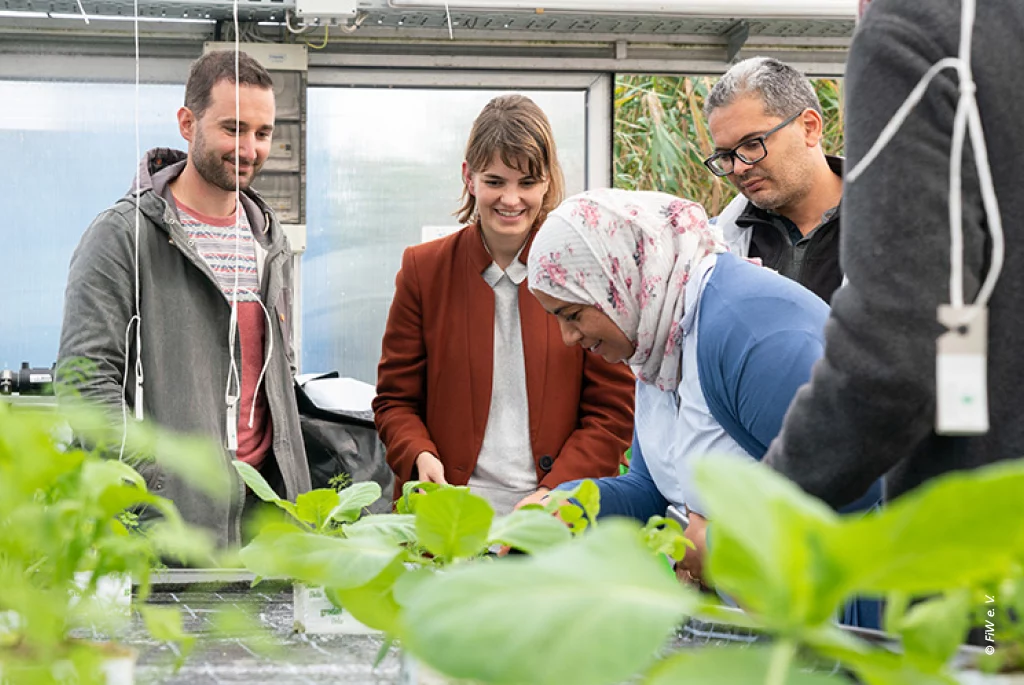
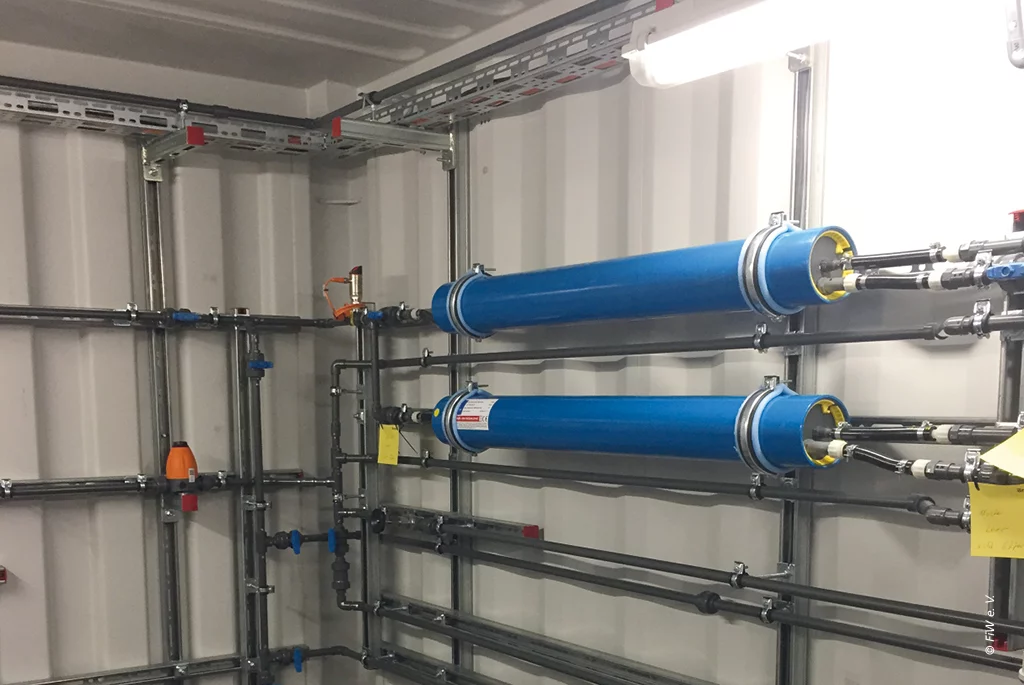

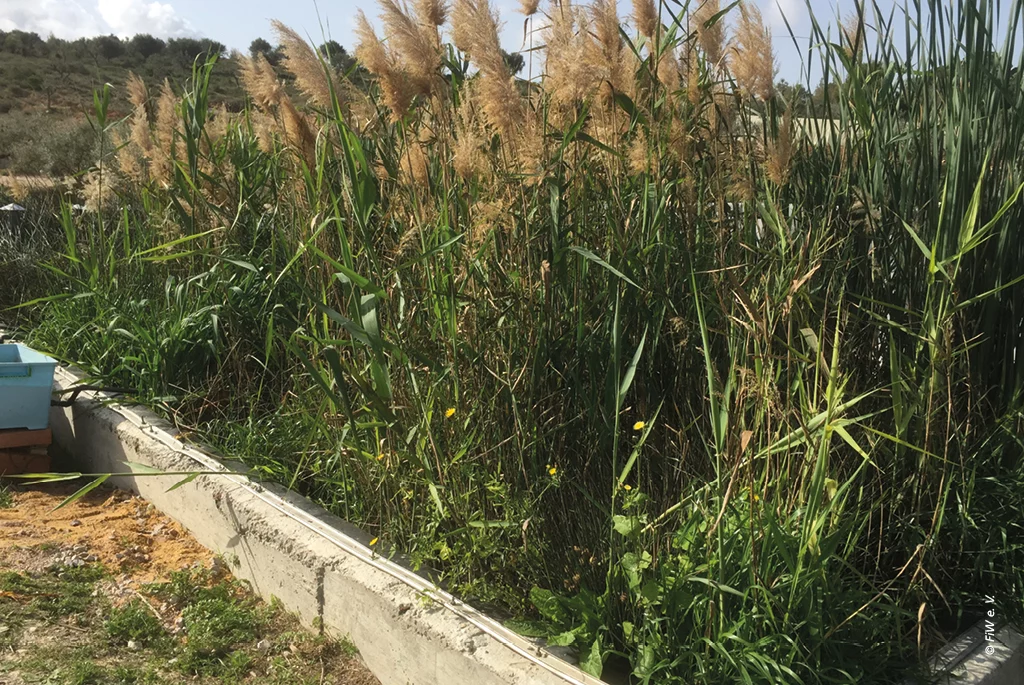
As part of the WaterReTUNe project, innovative technologies for the post-treatment of treated wastewater treatment plant effluents were developed and demonstrated in Tunisia. The pilot plant from the AWAREGIO project was used to ensure an efficient transfer of expertise and to develop a concept adapted to Tunisian framework conditions. Both BMBF-funded projects have demonstrated the potential of utilising treated wastewater in Tunisia and contributed to the further development and dissemination of adapted treatment and utilisation strategies. In the WaterRetune project, Nature Based Solutions (NBS) and an innovative membrane system consisting of nanofiltration (NF) and reverse osmosis (RO) were combined to produce partially demineralised reuse wastewater for irrigation purposes. In addition, brine treatment approaches were conducted for nutrient recovery and halophyte cultivation, as well as closed-loop, low-tech aquaponics production.
As early as 2021, it was demonstrated that the NF membrane concept successfully helped to partially desalinate the water from the soil filter. The NF permeate had a salt content that was around 2/3 lower than the original water and met the local drinking water standard. In the following year, the WHO requirements for irrigation water were also met. The operation of the NF membranes was simple and robust, with operating pressures of only 4 to 6 bar, and was about a power of ten below the required pressure of seawater desalination. The RO membrane made it possible to concentrate the NF brine to a fraction of the initial volume. It could be operated at low pressures of up to 12 bar and was also effective in water with high DOC concentrations. The NF removed drug substances such as carbamazepine, diclofenac, metoprolol and sulfamethoxazole, which had concentrations of between 30 and 600 ng/l in the input, by around 70 to 74%. However, benzatriazole, a common industrial chemical, was only retained at a low level of 17%. Clarithromycin was only present in the feed water in very low concentrations. Thus, the NF also proved to be suitable for the separation of trace substances. Furthermore, experiments were carried out on the utilisation of the brine in halophyte cultivation and on the removal of divalent ions from the brine. The permeate from the combination of NF and RO proved to be well suited as feed water for aquaponics. The low salt and lime content of the permeate proved to be extremely favourable compared to the previously used groundwater, particularly in the cultivation of young plants at the Groupement de Développement Agricole (GDA) Sidi Amor.
Specific costs of well below 0.5 TDN/m3 or <0.15 €/m3 were determined for treatment capacities between 1000 and 2000 m3/d, which are promising prerequisites for the economic applicability of this concept in large-scale technology.
Funding Agency
Project Manager
Dr.-Ing. Manuel Krauß
Head of International Cooperation, Education & Training
krauss@fiw.rwth-aachen.de
Dr.-Ing. Henry Riße
Research associate
risse@fiw.rwth-aachen.de
